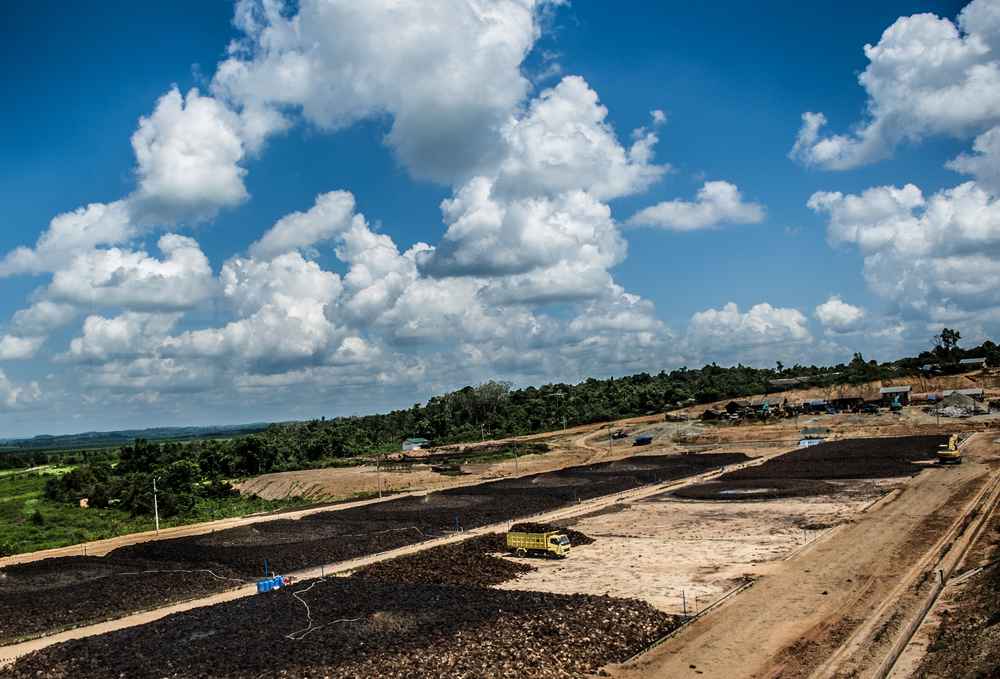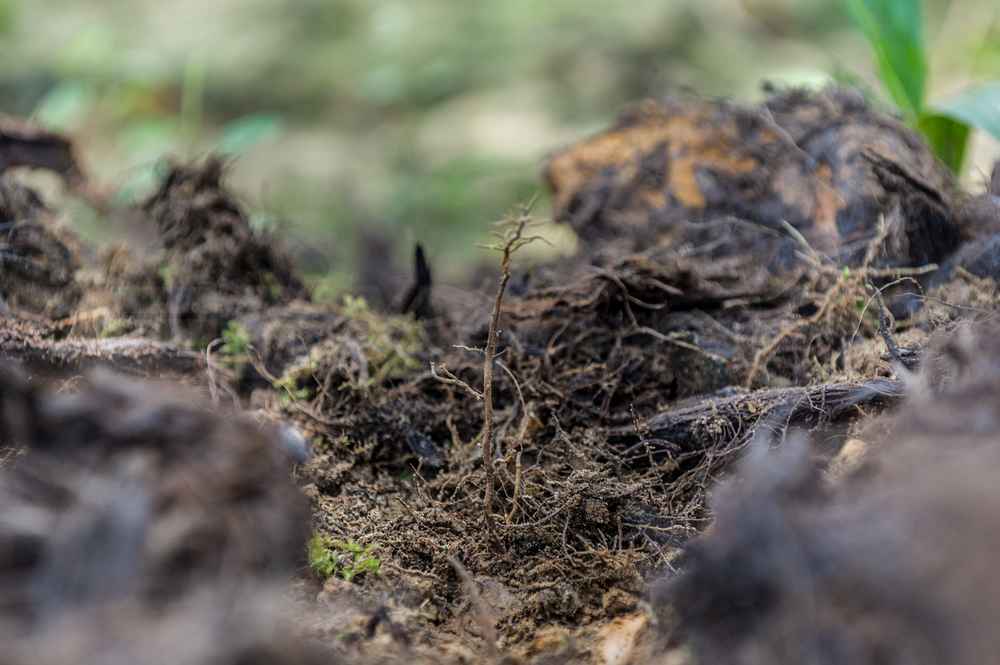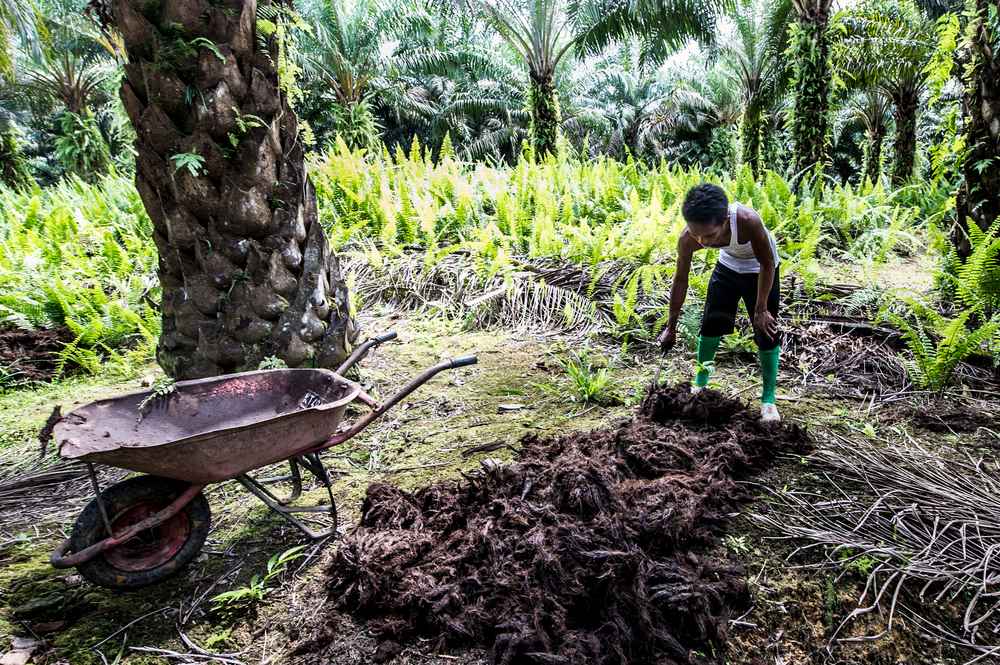The Science 3
19 Advantages of Earth to Earth Oil Palm Production.
What every Palm Oil owner should know about maximising his crop potential value.

Soil scientists have long known of the benefits of using compost in Oil Palm fields. For a long time however, the lack of a practical approach in the Oil Palm environment hindered the practice. Read on to learn what the experts have long known about how Oil Palm trees can greatly benefit from the application of organic matter.

- Compost contains macro and micronutrients often absent in synthetic fertilizers.
- Compost releases nutrients slowly—over months or years, unlike synthetic fertilizers.
- Compost enriched soil retains nutrients better, minimising runoff that pollute waterways.
- Compost buffers the soil, neutralizing both acid & alkaline soils, bringing pH levels to the optimum range for nutrient availability to palms.
- Compost helps bind clusters of soil particles, called aggregates, which provide good soil structure. Such soil is full of tiny air channels and pores that hold air, moisture and nutrients.
- Compost helps sandy soil retain water and nutrients.
- Compost loosens tightly bound particles in clay or silt soil so roots can spread, water drain & air penetrate.
- Compost alters soil structure, making it less likely to erode.
- Compost can hold nutrients tight enough to prevent them from washing out, but loosely enough so plants can take them up as needed.
- Compost makes any soil easier to work.
- Compost brings and feeds diverse life in the soil. These bacteria, fungi, insects, and worms support healthy palm growth.
- Compost bacteria break down organics into palm available nutrients. Some bacteria convert nitrogen from the air into palm available nutrient.
- Compost enriched soils have lots of beneficial insects, worms, and other organisms that burrow through soil, keeping it well aerated.
- Compost may suppress diseases and harmful pests that could overrun poor, lifeless soil.
- Healthy soil is an important factor in protecting our waters. Compost increases soil’s ability to retain water & decreases runoff. Runoff pollutes water by carrying soil, fertilizers and pesticides to nearby streams.
- Compost encourages healthy root systems, which decreases runoff
- Compost can reduce or eliminate use of synthetic fertilizers
- Compost can reduce chemical pesticides since it contains beneficial microorganisms that may protect plants from diseases and pests.
- A 5% increase in organic material can quadruple the soil water holding capacity.
